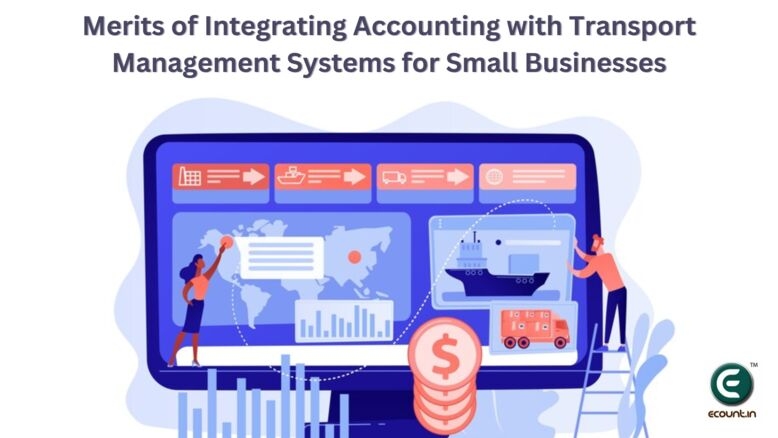Merits of Integrating Accounting with Transport Management Systems for Small Businesses
15-07-2024

The current business market for the logistics industry is constantly blooming, making it critical for small businesses to keep their finances and other crucial operations running efficiently. If they fail to do so, the larger enterprises in the competitive market will take away all of the business. From there small companies will not have any chance to function successfully in the market. Targeting to keep their finances together while eliminating any possibility of errors should be the priority of any small business.
Small transport businesses do not have any other option than implementing transport management solutions to automate various operations. But apart from that, the accounting system also holds much importance. Operating both systems separately could invite many errors due to a lack of consistency and coordination issues. This is what makes the integration of transport and accounting a crucial process for small businesses. It fills the gap between finances and logistics, boosting accuracy and smooth operation.
In this article, we will deep dive and understand the benefits of the integration between accounting and transport management solution
Importance of Transport Management System in Small Businesses
It is common for small businesses to have less manpower since they have to focus on their finances. By adapting the transport management system, they can nullify the need for extra manpower, reduce human mistakes, and automate redundant tasks. TMS not only helps reduce expenses but also streamlines freight operations including inventory management, route scheduling, load optimization, and others.
Need for Integration of TMS with Accounting System
The function of TMS is to simplify complex and tiresome transporting operations, while the accounting system manages all of the financial aspects of the business. The integration will bring many benefits while ensuring the financial records accurately align with the logistics data.
It provides logistics managers access to track real-time data associated with transportation expenses, revenue, and profit/loss. Every little expense considering from freight and carrier charges to customer invoices everything can be processed and recorded.
Best Practices for the Integration
To ensure proper integration of transport management solutions and accounting, some considerations should not be avoided. Here we have listed the best practices:
- It is paramount to ensure that the communication between both systems is effective. The best way to do that is by implementing systems with robust APIs, allowing seamless data exchange.
- Have clear expectations from the integration before the implementation i.e. lowering the amount of manual entries or enhancing operation quality and financial accuracy.
- Whenever integrating these systems, make sure that they are adhering to industry standards and regulations. Following this step will encourage data security leaving no possibility for data theft.
- After integration, the employees must get proper training on how to get more desirable output from the integration.
Merits of Integrating TMS and Accounting Management
Now that we got the idea of the best practices for the TMS and accounting integration, let us count the benefits associated with it:
Accurate Financial Operations
Errors in financial operations could be the prime reason for the downfall of any small business. Since they are in a growing stage, these inaccuracies in finances could cause a huge loss for them. Implementing the integrated TMS with accounting will lower the possibilities of manual errors, ensuring that records of expenses are up-to-date and faultless.
Compliance and Reports
Through integration managers can ensure that the financial transactions are precisely recorded and reported. It enables all the necessary reports and bills to be available at a centralized location. In addition, it facilitates logistics managers with the eway bills to check if the freight complies with the regulations. The system also allows access to eway bill sample for tracking and verifying the movement of all goods.
Effective Decision-Making
Since all the financial records are centralized and logistics managers can access dashboards at any time, it becomes easier to make data-driven decision making. Thanks to this, businesses can find opportunities for cost-cutting i.e. negotiating carries expenses or route optimization. This results in effective cost management and boosts profitability.
Customer Satisfaction and Retention
Customers only choose to do business with those who provide accurate invoices on time, leading to customer satisfaction and loyalty. Integration enables quick and precise invoice generation, making the business reliable. Small businesses can gain more benefits from it, since the possibility of customer retention becomes greater.
Conclusion
Integrating accounting and transport management software can be a game changer for logistics especially for small businesses. They can follow the best practices for it and take leverage of the advantages associated with it. Ultimately, these enterprises can stay competitive, become clients’ favorites, and have a better approach toward their businesses' future.